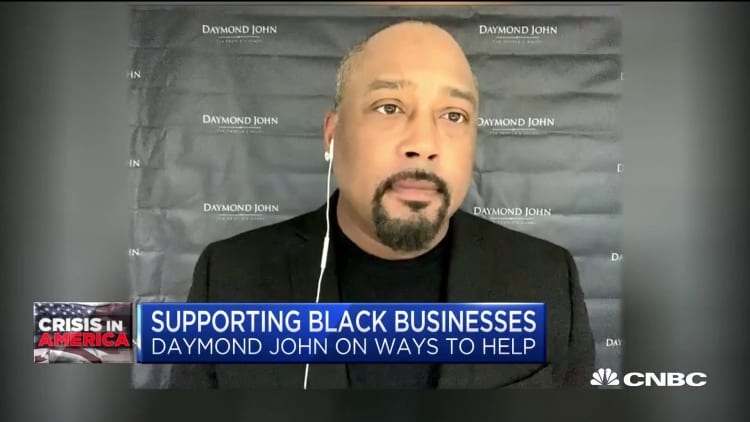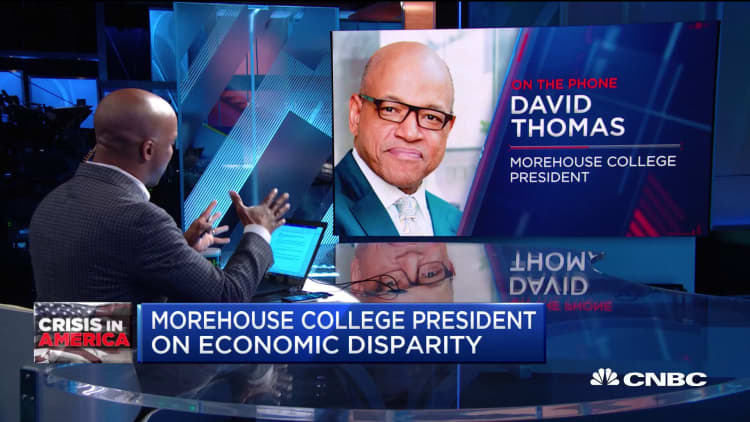
"Shark Tank" investor Daymond John told CNBC on Friday that "the first step" for CEOs who want to address racial inequality in the U.S. is listening to their own employees.
"Internally, have those tough questions being asked. Find out how your colleague or your staff feels that are of color and have the other individuals who may not be of color ask also," John said on "Closing Bell." "They'll start to get more insight. It has to start within the company."
John, who is CEO of clothing brand FUBU and The Shark Group, said he has done the same with his employees.
"I'm a man of color and many of them are not. I knew there were questions," he said. "A lot of people that are not minorities just don't understand, but they feel like they want to do and they don't know where to start."
John's remarks Friday come as protests continue across the U.S. against racism and police brutality in the wake of the death of George Floyd, who died after a white Minneapolis police officer knelt on his neck for nearly nine minutes. Corporate leaders have also responded to Floyd's death, issuing statements that expressed a desire to confront racial disparities in the country.
John said he believes for business leaders to change their own companies, they must understand the presence of systemic racism. For example, John said asking on a job application whether someone has a felony conviction will have a disproportionate impact on black Americans, who make up about 13% of the U.S. population but represent 38% of the current inmates at federal prisons, according to government data.
"Systemic racism is to arrest as many people of color as you can, then you immediately make it hard for people who are employers to hire them because they look at it as if the guy or girl was Scarface," John said, referencing Al Pacino's character, a notorious crime lord, in the 1983 movie.
"True entrepreneurs, what they do is, they find a problem in the market. They identify the problem, they listen, they do their homework and then they figure it out," he said. "And this is what you have to do. It starts with the systemic racism. Before you can get to help your company, you need to understand some things to make these adjustments."
Adjusting the applicant pool for a job to include people who may have been involved in the criminal justice system or perhaps come from outside of a few elite colleges are two possible ways to start diversifying a workforce, John said. And ultimately, he said, that is good for business.
"You're going to get more value, you're going to get more creativity from two different or four different parties looking at things in a different way. But you have to put the change within your hiring practice," he said. "You can't force it ... But you've got to at least say, 'I'm going to give them a shot and give them a try and I'm going to look at things such as felonies, records, education.'"
Disclosure: CNBC owns the exclusive off-network cable rights to ″Shark Tank," on which Daymond John is a co-host.



